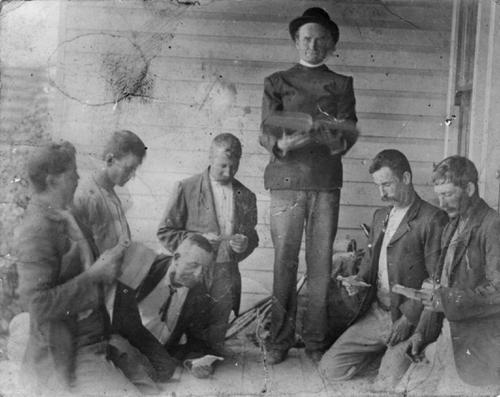当前位置:
X-MOL 学术
›
WIREs Clim. Chang.
›
论文详情
Our official English website, www.x-mol.net, welcomes your feedback! (Note: you will need to create a separate account there.)
Acts of God: Continuities and change in Christian responses to extreme weather events from early modernity to the present
WIREs Climate Change ( IF 9.2 ) Pub Date : 2019-12-13 , DOI: 10.1002/wcc.631 Joseph Hardwick 1 , Randall J. Stephens 2
WIREs Climate Change ( IF 9.2 ) Pub Date : 2019-12-13 , DOI: 10.1002/wcc.631 Joseph Hardwick 1 , Randall J. Stephens 2
Affiliation

|
Scholars, activists and others increasingly acknowledge that religion—whether conceived in terms of ideas, rituals or institutions—can help us cope with climate change and make sense of extreme weather events. Churches provide moral lessons in times of crisis, they spread awareness of climate change and, through community ritual, religious institutions can nurture a sense of collective responsibility. Much has been written on how contemporary faith groups have understood and acted on climate change and extreme weather events. Yet this literature is often not historically rooted and makes only superficial reference to the complex relationships between climate, extreme weather and religion in the past. Without an historical awareness we cannot understand the extent to which present‐day religious discourses on the environment—from those articulated by “greener faith” advocates to fundamentalist skeptics—connect with how past societies understood climate and, more specifically, extreme weather events. A survey of the literature on Christian responses to extreme weather events, whether these be slow disasters (droughts) or isolated events (storms), suggests that histories that emphasize ruptures in attitudes to the natural world are problematic. Extreme weather events have long been regarded as omens and signs, and as divine judgments on sin. It is still thought that weather disturbances reflect disorders in human society. This literature survey introduces these continuities in Christian responses to extreme weather by ranging broadly across the English‐speaking world from early modernity, though special attention is given to current work on Anglophone settler societies.
中文翻译:

上帝的作为:基督教对从早期现代到现在的极端天气事件的响应的连续性和变化
学者,激进主义者和其他人士越来越多地认识到,宗教(无论是从观念,仪式还是制度上构想的)都可以帮助我们应对气候变化并理解极端天气事件。教会在危机时期提供道德课程,它们传播对气候变化的认识,并且通过社区仪式,宗教机构可以培养集体责任感。关于当代信仰团体如何理解和应对气候变化和极端天气事件的著作,已有很多报道。然而,这些文献通常没有历史根源,仅表面提及过去的气候,极端天气和宗教之间的复杂关系。没有历史意识,我们将无法理解当今宗教对环境的讨论程度(从“绿色信仰”倡导者表达出来的言论到原教旨主义怀疑论者)与过去社会如何理解气候,更具体地说是极端天气事件的联系。对有关基督徒对极端天气事件的响应的文献的调查表明,无论是缓慢的灾难(干旱)还是孤立的事件(暴风雨),强调历史对自然世界态度破裂的历史都是有问题的。长期以来,极端天气事件一直被视为预兆和征兆,并被视为对罪恶的神圣判断。仍然认为天气干扰反映了人类社会的失调。
更新日期:2019-12-13
中文翻译:

上帝的作为:基督教对从早期现代到现在的极端天气事件的响应的连续性和变化
学者,激进主义者和其他人士越来越多地认识到,宗教(无论是从观念,仪式还是制度上构想的)都可以帮助我们应对气候变化并理解极端天气事件。教会在危机时期提供道德课程,它们传播对气候变化的认识,并且通过社区仪式,宗教机构可以培养集体责任感。关于当代信仰团体如何理解和应对气候变化和极端天气事件的著作,已有很多报道。然而,这些文献通常没有历史根源,仅表面提及过去的气候,极端天气和宗教之间的复杂关系。没有历史意识,我们将无法理解当今宗教对环境的讨论程度(从“绿色信仰”倡导者表达出来的言论到原教旨主义怀疑论者)与过去社会如何理解气候,更具体地说是极端天气事件的联系。对有关基督徒对极端天气事件的响应的文献的调查表明,无论是缓慢的灾难(干旱)还是孤立的事件(暴风雨),强调历史对自然世界态度破裂的历史都是有问题的。长期以来,极端天气事件一直被视为预兆和征兆,并被视为对罪恶的神圣判断。仍然认为天气干扰反映了人类社会的失调。



























 京公网安备 11010802027423号
京公网安备 11010802027423号